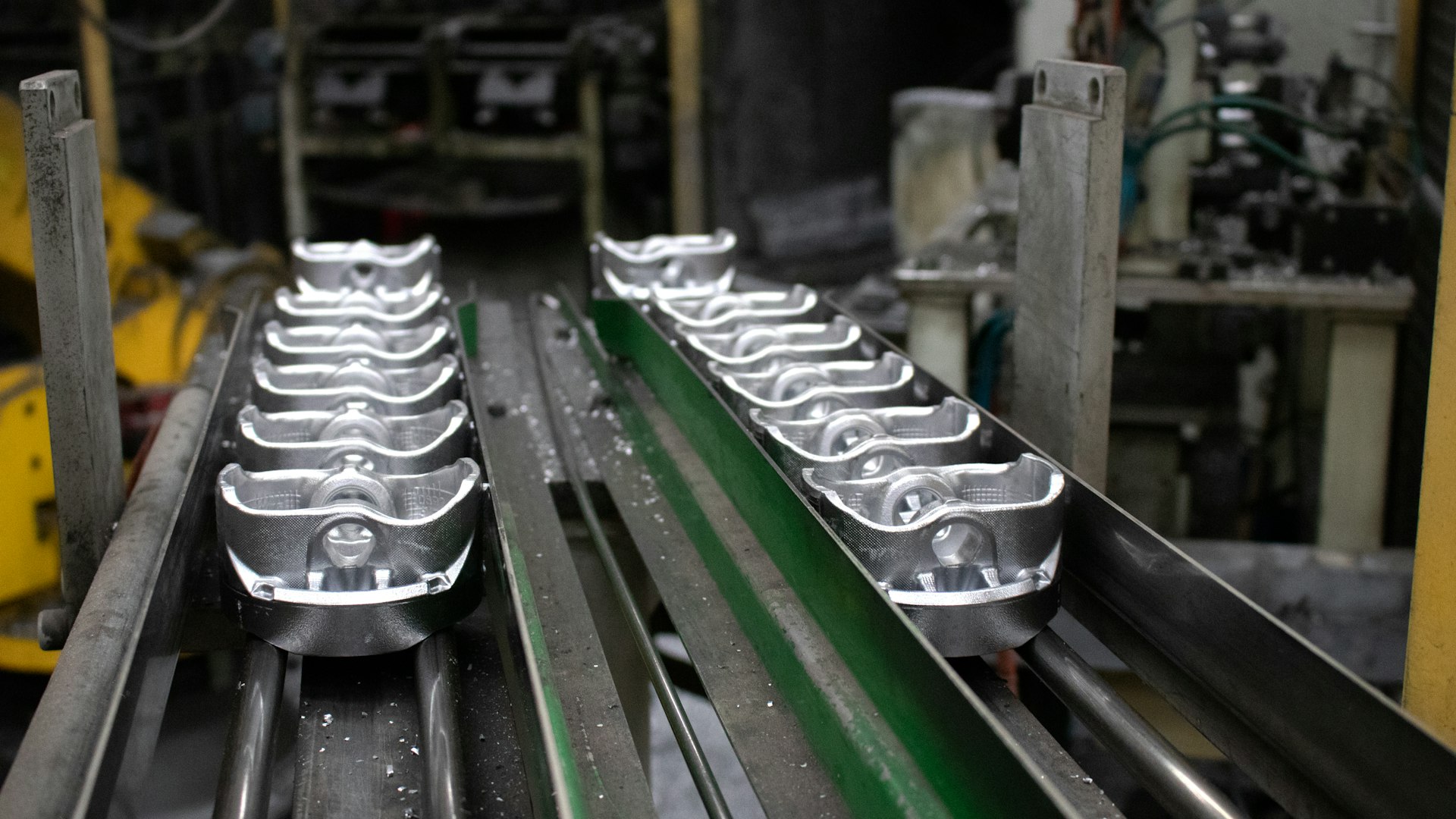Comprehensive Solutions for Electric Vehicle Battery Recycling: Turning Waste into Resources

Photo by Newpowa on Unsplash
Understanding Electric Vehicle Battery Recycling
As the world embraces electric vehicles (EVs) to reduce carbon emissions and promote sustainability, the management of end-of-life EV batteries has become a critical issue. These batteries contain valuable and sometimes hazardous materials such as lithium, cobalt, nickel, and copper, making their responsible recycling essential for both environmental protection and resource recovery. Addressing this challenge requires solutions that are safe, efficient, and adaptable to the rapidly growing EV market.
Key Stages in EV Battery Recycling
Electric vehicle battery recycling is a complex process with multiple stages. Industry leaders such as Veolia have established a five-stage approach to ensure safety and maximize material recovery:
- Collection : Used EV batteries are gathered from dealerships, service centers, and end-users. Efficient collection reduces storage risks and ensures batteries are processed quickly. Companies like Battery Recyclers of America provide next-day pickup services across the U.S., making the process accessible and convenient for businesses and individuals alike [4] .
- Securing and Discharging : Batteries are carefully secured and fully discharged to prevent electrical hazards during further handling [1] .
- Dismantling : Specialized equipment and trained personnel dismantle the battery packs, separating individual cells and components. This stage is crucial for both safety and material purity [3] .
- Mechanical Separation : Advanced mechanical processes extract the valuable ‘black mass’-the fine powder containing lithium, cobalt, nickel, and other metals-from the cells [1] .
- Hydrometallurgy and Refining : Chemical processes separate and purify the metals, which can then be reused to manufacture new batteries, closing the resource loop [2] .
Leading Industry Solutions and Providers
Several established and emerging companies offer innovative electric vehicle battery recycling solutions, each with unique strengths and service models:
- Veolia : With extensive expertise in hazardous waste management, Veolia offers a comprehensive, five-stage recycling process. The company has partnered with major automakers like Renault to recycle batteries across Europe, demonstrating scalability and environmental commitment [1] . Their approach emphasizes safety, traceability, and the production of high-quality recycled components for new batteries.
- Umicore : A leader in closed-loop recycling, Umicore’s proprietary technology recovers copper, cobalt, nickel, and lithium to battery-grade purity. These materials are then used to produce new cathode materials, reducing the need for virgin mining and supporting a sustainable supply chain [2] .
- Battery Recyclers of America : This U.S.-based provider offers nationwide, next-day pickup services for spent EV batteries. The company uses EPA-approved facilities and customized logistics, making the process streamlined for customers of all sizes. Their services are especially useful for fleet operators, dealerships, and businesses seeking hassle-free compliance with environmental regulations [4] .
- Cirba Solutions : Specializing in lithium-ion battery recycling, Cirba Solutions offers flexible collection options, including WeRecycle kits for safe battery shipment. Their focus on adaptable logistics and cross-chemistry solutions makes them a strong partner for organizations with diverse battery recycling needs [5] .
Actionable Steps to Access EV Battery Recycling Services
Whether you are an individual EV owner, a fleet manager, or a manufacturer, practical access to battery recycling services can be achieved through several pathways:
- Contact a Certified Recycler : Companies such as Battery Recyclers of America and Cirba Solutions provide direct contact channels for quotes and service arrangements. For immediate needs, you can call or visit their official websites to request next-day pickup or recycling kits. When reaching out, be prepared to provide details such as battery type, quantity, and location.
- Partner with Industry Leaders : Manufacturers and large fleet operators may benefit from establishing long-term partnerships with providers like Veolia or Umicore. These partnerships can be tailored to specific business needs and may include customized logistics, compliance support, and material recovery agreements. To initiate such collaboration, contact the provider’s corporate solutions team through their verified website.
- Utilize Local Collection Programs : Some municipalities and automakers offer local battery collection or take-back programs. To find these services, search for “EV battery recycling” along with your city or automaker’s name, or inquire at your dealership or local government environmental office.
- Ensure Regulatory Compliance : Confirm that your chosen recycling provider operates EPA-approved facilities and follows all relevant safety and environmental guidelines. This ensures safe handling and legal compliance, reducing liability and environmental risk.
Benefits of Responsible EV Battery Recycling
Adopting responsible recycling solutions for EV batteries delivers multiple benefits:

Photo by Newpowa on Unsplash
- Environmental Protection : Prevents hazardous materials from entering landfills and ecosystems, reducing soil and water contamination risks [1] .
- Resource Recovery : Recovers critical minerals, reducing dependence on mining and supporting a circular economy [2] .
- Regulatory Compliance : Ensures adherence to laws governing the disposal and recycling of hazardous waste, helping businesses avoid penalties [4] .
- Potential Financial Return : Some recyclers offer compensation for valuable recovered materials, depending on battery type and market demand.
- Brand and Corporate Responsibility : Demonstrates commitment to sustainability, which can enhance brand image and meet stakeholder expectations.
Challenges and Evolving Solutions
Despite significant advancements, several challenges remain in electric vehicle battery recycling:
- Cost and Scale : Recycling processes are still expensive, and building commercial-scale facilities requires substantial investment. However, startups are developing automated disassembly and more efficient chemical extraction methods to lower costs and increase throughput. For instance, new facilities under construction in Nevada are designed to process tens of thousands of tons of batteries annually, aiming to make recycling more accessible and affordable [3] .
- Technological Complexity : EV batteries vary in chemistry, size, and structure, requiring flexible recycling techniques and continuous innovation.
- Logistical Barriers : Safe transportation and storage of used batteries are critical, especially when handling large volumes or shipping across long distances. Providers like Cirba Solutions and Battery Recyclers of America have developed specialized logistics networks to address these challenges [5] .
Alternative and Emerging Approaches
In addition to traditional recycling, several alternative and complementary strategies are gaining traction:
- Second-Life Applications : Some EV batteries retain sufficient capacity for use in stationary energy storage, such as grid backup or renewable integration. This extends battery life before recycling and can add economic value.
- Research and Innovation : Ongoing research aims to improve material recovery rates, develop safer battery chemistries, and create standardized processes for dismantling and recycling. Collaboration among automakers, recyclers, and governments is key to advancing these solutions.
Getting Started: Step-by-Step Guidance
To begin recycling your electric vehicle batteries:
- Identify the battery type and quantity you need to recycle.
- Research certified recyclers in your region, such as Battery Recyclers of America, Cirba Solutions, Veolia, or Umicore.
- Contact the provider through their official website or customer service line to request a quote, schedule pickup, or order recycling kits. Be ready to provide details on battery specifications and pickup location.
- Follow the provider’s instructions for safe packaging, labeling, and handoff. Many companies offer guidance on compliance with shipping and hazardous materials regulations.
- Request documentation of recycling or disposal for your records and compliance needs.
If you are unable to find a suitable recycling provider, consult your vehicle manufacturer or local government environmental office for additional resources and programs.
References
- [1] Veolia (2024). Recycling electric car batteries: Process and benefits.
- [2] Umicore (2024). Battery Recycling Solutions: Closed-loop recycling and material recovery.
- [3] Canary Media (2023). EV battery recycling is costly. These 5 startups could change that.
- [4] Battery Recyclers of America (2024). Electric Vehicle (EV) Battery Recycling Services.
- [5] Cirba Solutions (2024). Sustainable EV Battery Recycling Services.



